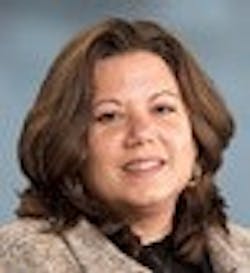Scientists Enjoy Rock Star Treatment
I started reading Neil deGrasse Tyson’s book “Astrophysics for People in a Hurry.” It was an impulse buy on Amazon.com but I’ve always been fascinated by how the world began and figured the refresher would complement my knowledge gained (and forgotten) in college. As he put it: “We are stardust brought to life, then empowered by the universe to figure itself out—and we have only just begun.”
To me, Neil is more than stardust – he’s a full-fledged rock star. In fact, he was just on Jeopardy as a clue-giver noting he was named the “Sexiest astrophysicist alive in 2000” by People magazine. But not all scientists reach his stellar status.
Enter Breakthrough Foundation, which gave away $22 million in prizes to dozens of physicists, biologists and mathematicians at a star-studded ceremony at NASA’s Ames Research Center in California.
Morgan Freeman served as host as award recipients hob-knobbed with several actors including Kerry Washington and Mila Kunis. The winners who work on cell biology, plant science and neurodegenerative diseases were among the headliners. Additionally, two mathematicians and a team of 27 physicists who mapped the primordial light that warmed the universe moments after the big bang 13.8 billion years ago enjoyed the star treatment.
Now in their sixth year, the Breakthrough prizes are backed by Yuri Milner, a Silicon Valley tech investor; Mark Zuckerberg of Facebook and his wife Priscilla Chan; Anne Wojcicki from the DNA testing company 23andMe; and Google’s Sergey Brin. Launched by Milner in 2012, the awards aim to make rock stars of scientists and raise their profile in the public consciousness.
According to an article in the Guardian, Chuck Bennett, an astrophysicist at Johns Hopkins University in Baltimore who led a NASA mission known as the Wilkinson Microwave Anisotropy Probe (WMAP) to map the faint afterglow of the big bang’s radiation that now permeates the universe, believes that the prizes may help raise the profile of science at a time when it is sorely needed. “The point is not to make rock stars of us, but of the science itself,” he said. “I don’t think people realize how big a role science plays in their lives. In everything you do, from the moment you wake up to the moment you go to sleep, there’s something about what you’re doing that involves scientific advances. I don’t think people think about that at all.”

